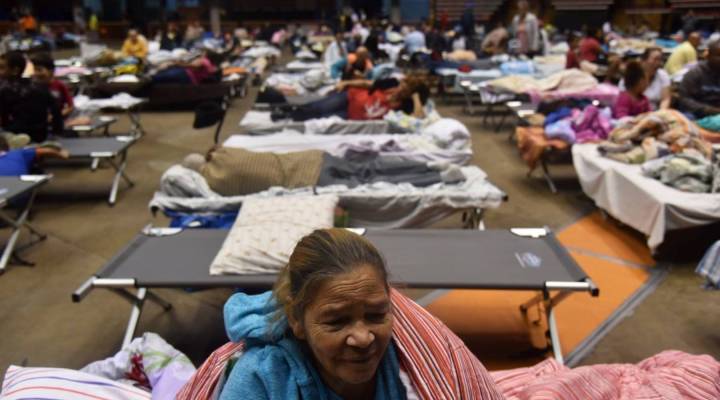
How organizations prepare for natural disasters
How organizations prepare for natural disasters

Hurricane Maria is over Puerto Rico, with the eyewall soon due at the capital San Juan. Its arrival follows Tuesday’s 7.1 earthquake in Mexico, where rescue crews are searching for survivors.
In the aftermath of a natural disaster, how do organizations prepare and send help? Garrett Ingoglia — VP of emergency response for Americares, a Connecticut based nonprofit — joined us to discuss how his group does it, and whether people are becoming too emotionally fatigued to help out. Below is an edited transcript.
David Brancaccio: How do you, as a disaster-relief outfit, coordinate all the moving parts?
Garrett Ingoglia: Like any organization, we have limited resources, but we also prepare for this. Any response organization has to have the ability to increase its workforce quickly to meet the demands of one, or in this case, multiple disasters. So we put in place systems to enable us to do that.
Brancaccio: Well, how does it work? Do you have warehouses with medical aid on standby that you can draw from? But once you get the word from Dominica or Mexico, how do you get the stuff toward the plane?
Ingoglia: We do have a large warehouse with medicine and medical supplies. Getting the aid where it needs to go is one of the big challenges of all these disasters. Airports may be damaged, ports may be damaged. And so sometimes we have to use different methods to get supplies there. For example, we were able to work closely with the Federal Emergency Management Agency to bring some tetanus vaccines which have to be kept refrigerated in a refrigerated container. We were able to fly them down to San Juan where a FEMA representative met them and took the vaccines from San Juan to St. Thomas by plane — and they have rights to land on St. Thomas.
Brancaccio: Disaster relief takes money, and individuals who donate to Americares and others, may be confused about how best to help. They may be tapped out. Do you also worry that they’re running low on the emotional energy they need to keep paying attention?
Ingoglia: I just encourage people to think about those who are in the path of this new hurricane, for example, or affected by the last earthquake. They need help, and we hope that people will be able to stay focused and stay interested and continue to contribute to organizations like ours.
| Are we spending enough on disaster preparation? |
| What budget cuts would mean for predicting storms like Irma |
| Where does your donation dollar really go? |
There’s a lot happening in the world. Through it all, Marketplace is here for you.
You rely on Marketplace to break down the world’s events and tell you how it affects you in a fact-based, approachable way. We rely on your financial support to keep making that possible.
Your donation today powers the independent journalism that you rely on. For just $5/month, you can help sustain Marketplace so we can keep reporting on the things that matter to you.


















